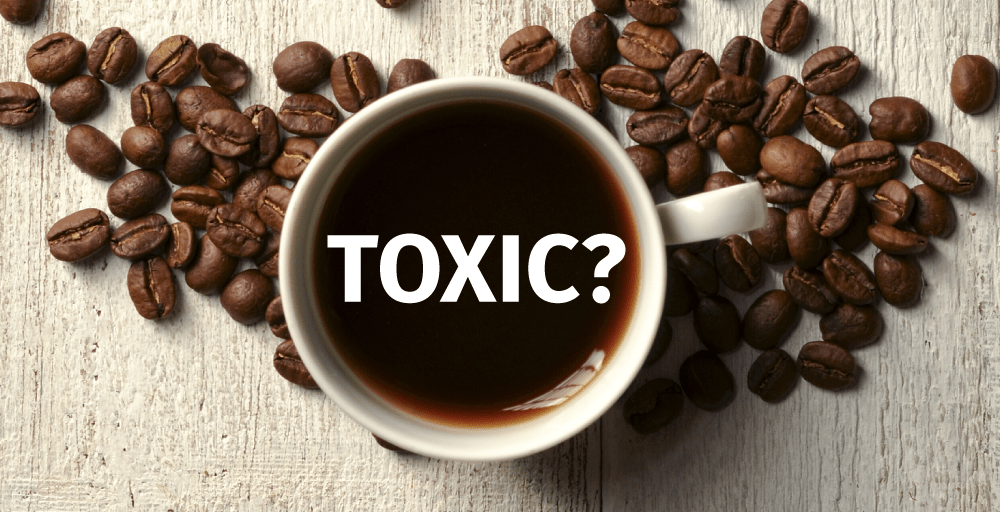If you’re aiming for peak health, then avoiding toxins is part of that journey…
But what if the vast majority of coffee is riddled with toxins, as some sources suggest?
Given it’s the second most exported commodity worldwide, it’s no surprise corners have been cut when it comes to health.
1. Most of the coffee crops = sprayed with pesticides
Unless you’re doggedly sourcing organic coffee (and avoiding the free coffee available in many hotels, offices, waiting rooms, Keurig pods, etc.), you’re drinking a conventionally-raised crop, which is synonymous with:
Cheap and full of nasty chemicals.
Yuck.
This means that your coffee beans have been heavily sprayed with pesticides and are infected with molds (more on that, below), such as these:
- Ochratoxin A
- Acrylamide
- Polycyclic Aromatic Hydrocarbons
- And more.
If you’re thinking:
Well, won’t my body just eliminate the chemicals that it deems unnecessary?
The answer is no.
Chemicals lodge themselves into the fat tissues of the body, to keep these harmful substances away from vital organs. So they get stored in your body, with random reintroductions of themselves into your bloodstream (think: when you exercise, i.e.).
This restimulation of toxins causes symptoms like:
- Fatigue
- Weakness
- That feeling of not being totally clear
- Other serious diseases
- And endocrine (hormone) disruptions.
Bigger problem:
There is no official monitoring of pesticide residues, thus…
You get what you get.
2. Coffee is full of mold, which creates gross mycotoxins
What are mycotoxins?
According to the World Health Organization, “mycotoxins are naturally occurring toxins produced by certain molds (fungi) and can be found in food.
“The molds grow on a variety of different crops and foodstuffs including cereals, nuts, spices, dried fruits, apples and coffee beans, often under warm and humid conditions.”
Mycotoxins are problematic because of their known and unknown effects on the nervous system, plus:
Documented neurotoxicity.
Further:
It was discovered in a study in Brazil amongst prominent coffee farmers that there is a direct correlation between exposure to pesticides used on coffee crops and losing that feeling of vitality about life, which we all want.
Mycotoxins have been shown to promote:
- Cardiomyopathy
- Cancer
- Hypertension
- Kidney disease
- And even damage to that main thinking organ in your skull.
So…
How much of the coffee out there is infected by mycotoxins?
One study showed about over 91%.
3. Coffee stains your teeth
If you’ve drank coffee for any length of time, you know you need to invest in a whitening toothpaste or risk your grill looking like Austin Powers’.
Though stained teeth pales in comparison to more severe effects from toxins in your coffee, it’s still a reason to calm down on the beverage.
4. Coffee drinks often come with hidden sugars
Often times the bitterness we taste in coffee is a result of all the added chemicals and molds, which is why cheap coffee essentially MUST come with:
- Sugar
- Extra cream
- Flavorings.
Sugar is a contributor to premature aging, so unless you’re splurging on your family’s birthday cake, you don’t need extra grams in your beverages eroding away your longevity…
Especially if it’s added to hide the acidic bitterness of cheap, mainstream coffee!
Coffee being a tainted crop is one of the reasons we created Wholesome Organics Clean Energy Shots—
To provide an easy, endocrine-balancing, non-toxic alternative to getting that quick energy rise we all need to take on life.
